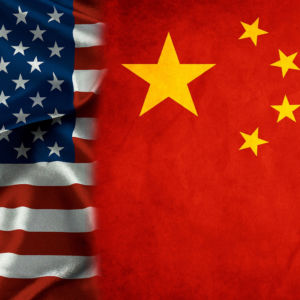Inflation is rising, but 73 percent of American voters support higher prices on China goods. Yet, with Trump Derangement Syndrome as real as COVID, some members of Congress aren’t interested in what voters want and prefer to dump on anything Trump imposed in regard to China under the guise that it will somehow end inflation.
Congress and the White House have been chipping away at the trade war tariffs ever since Biden took office. Inflation still rises. It’s not because of China tariffs. In mid-April, a survey by Morning Consult revealed that a vast majority supported tariffs on China imports. More than 70 percent said the U.S. government should keep the so-called Section 301 tariffs on China.
An additional 61 percent said increased imports have led the United States to become too dependent on China for goods that are critical to U.S. economic and national security — like basic microelectronics, to give just one example.
It’s easy to dump on China. The director of national intelligence, in an annual threat assessments, listed China as public enemy number one for at least five years. That’s a bigger threat than Russia and … ISIS.
But who really deserves the disdain is not Beijing, or Chinese workers: it’s Target, Walmart, Nike, Apple, Boeing, Intel and many more corporations, massive and midsize, who have exported American jobs to China for decades. China didn’t force them to do it. Now Americans have had it. Washington doesn’t seem to get it.
On April 21, Deputy National Security Adviser Daleep Singh said tariffs should be removed on China goods, a total high-five to Big China Business. “It doesn’t make sense to have tariffs on underwear or bikes,” he said. Singh resigned from the White House. It is hoped he will not be replaced by someone who agrees with him. No chance labor agrees. The Biden administration has been erasing tariffs all year.
In February, some solar tariffs were killed to “stop inflation” and “save the planet.” Mostly all of those solar panels come from China companies in Asia. A big win for them.
There is enormous pressure on the U.S. trade representative to remove tariffs on China. The USTR exempted hundreds of importers last month from paying port duties. Some of those companies are nothing more than a website selling Chinese electronics.
Senators want more. Mike Crapo, R-Idaho, wrote the Trade Act of 2021 into the Senate’s U.S. Innovation and Competition Act, also known as “the China bill”. It sure is a China bill. Because Crapo’s trade provision would make it easier to exempt importers from China tariffs and make it harder for the White House to ever impose them.
Idaho’s economy has not suffered from the tariffs. Potato exports and revenue broke records in 2019. The poverty rate fell to 9.2 percent in 2020 from 11.5 percent in 2018. Micron Electronics is there, and it is a big China importer. In fact, Idaho is losing out on microelectronics exports as China takes over that market. Idaho’s exports of transportation equipment has collapsed by 80 percent and replaced by China imports, up 60 percent in 2020. A lot of this is refrigeration units and containers for the trucking industry, a market China pretty much owns.
Crapo is not alone in wanting to gut tariffs. Nineteen other GOP senators agree, including Mitch Romney of Utah, Lindsey Graham of South Carolina, Mitch McConnell of Kentucky, Todd Young of Indiana and Rob Portman of Ohio. Could there be a state more gutted due to the offshoring of manufacturing other than Ohio? Michigan might be the only one to top it.
It’s not just Republicans. Jacky Rosen, D-Nevada, ran a campaign to kill solar tariffs. Diane Feinstein of California, who once had a Chinese spy as her limo driver, joined that campaign.
China agrees. Its embassy in Washington is actively lobbying both houses of Congress to keep the anti-tariff trade provision in the combined “China bill” now known as the Bipartisan Innovation Act. China could stay quiet though. American companies, and Congress, will lobby for them for free.
On April 17, the Wall Street Journal Editorial Board said China tariffs should be cut to help inflation. On April 28, former U.S. Trade Representative Robert Lighthizer responded, saying: “Rolling back the tariffs would essentially give the adversary a pass, and cost many Americans their jobs. The China challenge is more important to the long-term prosperity and security of our country than current inflation.”
Reminder: 73 percent of American voters would agree with that statement.
ABOUT THE WRITER


